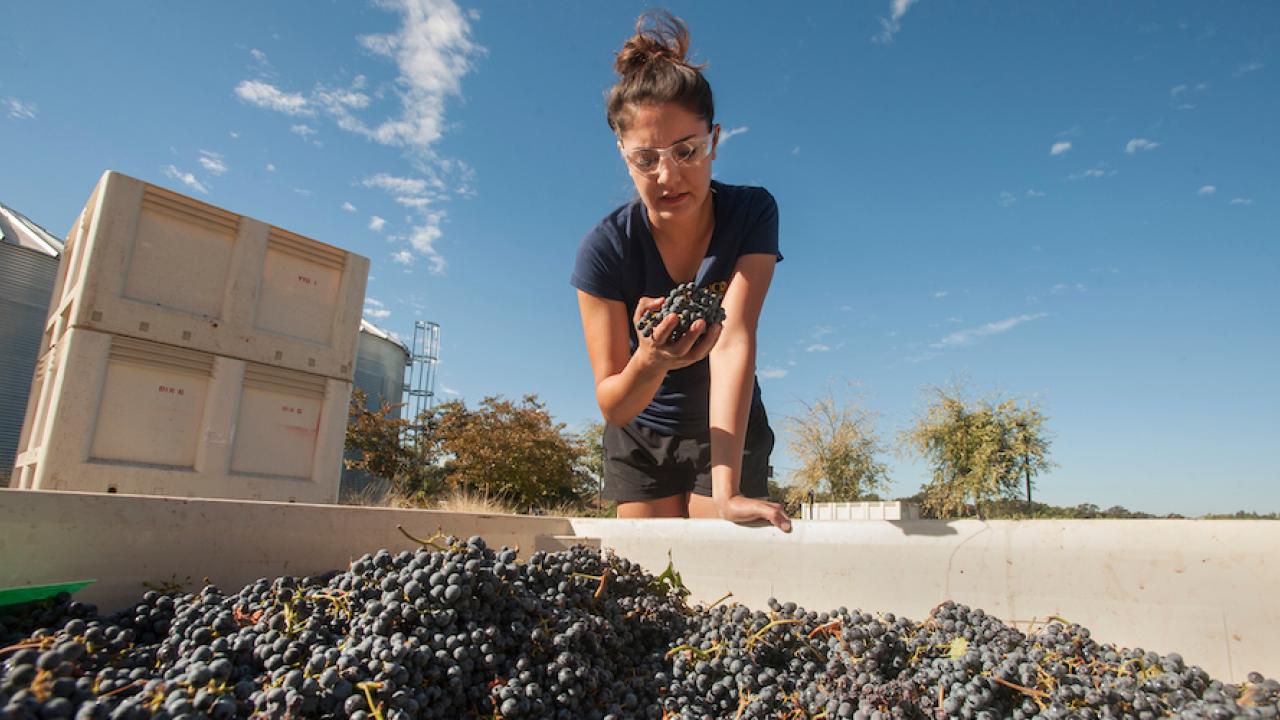Could there be a more romantic major than wine? (Well, viticulture and enology, to be exact.) Students swish mouthfuls of merlot and compare them to notes of coffee, lavender, wormwood and star anise — for a grade. They roam the campus vineyards with a professor and classmates who don wide-brimmed sun hats as they test grape leaves for their hydration. They crush grapes, ferment wine, and — why not? — even travel to France for internships.
Most students in the major will tell you it requires more than lifting a pinky as you sip a pinot noir. Viticulture and enology (VEN) leads to a bachelor’s in science, after all, and the coursework is commensurate with the title. Viticulture is the study of grape cultivation, while enology is the study of wine and winemaking. Lab work takes up a significant portion of the course load, as does physical labor.
“If you’re doing manual labor, you have to enjoy it,” says Kaitlyn Glynn, a junior in viticulture and enology, and a peer advisor for the BFTV cluster (Biological and Agricultural Engineering, Food Science and Technology, Textiles and Clothing, and Viticulture and Enology). “You should definitely like science, how components work together to produce a beautiful wine, and be happy working outside.”
Students say they chose the major because their passion extends beyond the taste of the wine. They revel in the complex grape-growing process and the science from grape breeding to fermentation.
Viticulture and enology coursework
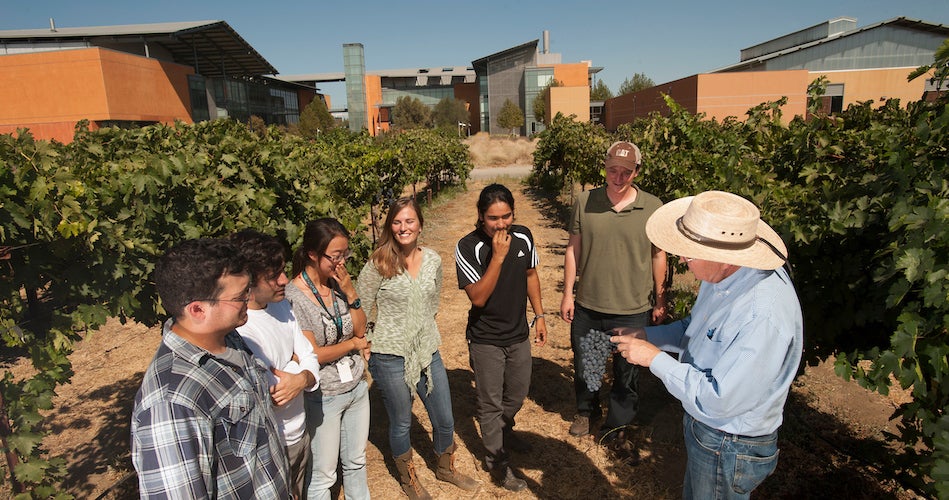
The prerequisites for the VEN major include biological science, chemistry, physics and calculus, as well as a broad introduction to viticulture (i.e., grape growing) and winemaking. Glynn said the prereqs were a challenge for, but she powered through them.
“I’ve tried to take at least one VEN class every quarter to remind myself — that’s why I’m doing it, what I’m on track for and why I love this career I’m trying to do.”
Graduating senior Austin Luse’s childhood memories of his father’s winery keep him motivated. He took a year and a half off between community college and UC Davis to intern at a winery, which has kept him grounded through long hours of lab work.
“I grew up climbing barrels and I grew used to the smells — harvest smells indescribable, mostly like grape juice but much more complex than that,” Luse says. “It helped me to go back to school with more motivation, wanting to work at a winery full time. A lot of students go to school without a view of where that will take them. It gave me perspective and made everything feel more tangible.”
Life in the viticulture and enology major
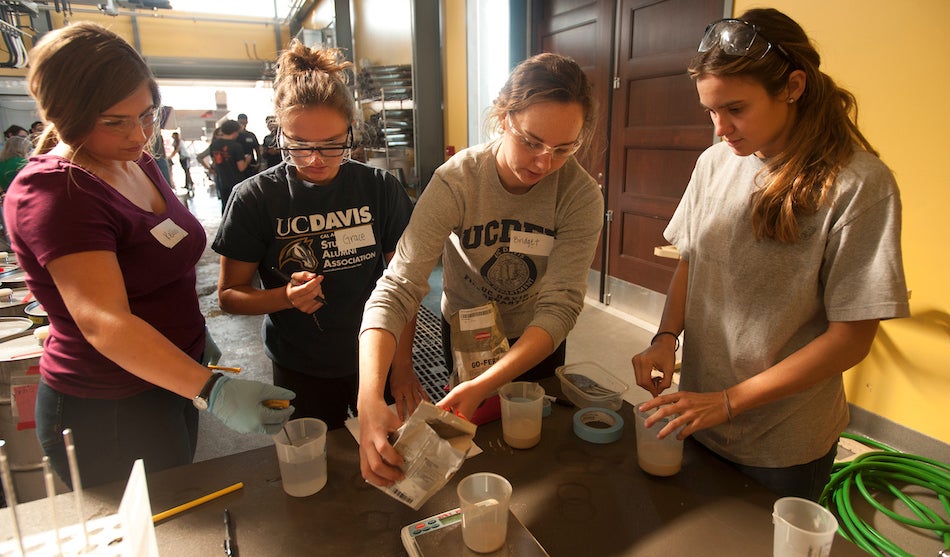
Depth requirements in the major require more biological science, microbiology and statistics, as well as 11 viticulture classes and three labs — hands-on classes such as wine production, sensory evaluation and wine stability. Luse says he occasionally spent 20 to 30 hours a week on lab reports, but he says the extra time is worthwhile.
“UC Davis is an authority on wine research and education,” he says. “You’re going to the school where famous winemakers have gone, and it’s helping the wine industry today. You’re being set up for success.”
Founded in its current form in 1935, after the repeal of prohibition, the department has a storied history. UC Davis wine scientists such as Maynard Amerine and Albert Winkler developed the microclimate zone system still in use by today’s grapegrowers.
It’s also a small major that allows for personalized attention. On-campus clubs and organizations meet regularly and help students build connections with each other and industry leaders. Luse pointed out that wine is a small industry, too, and he plans to work with his classmates throughout his career. Glynn added that she appreciates the many opportunities to connect with peers.
“I like being in a small major because you get to know everyone better,” she says. “As a junior and senior, you see the same people often. Everyone has a different background and you learn from each other. It builds a community.”
Internships and research
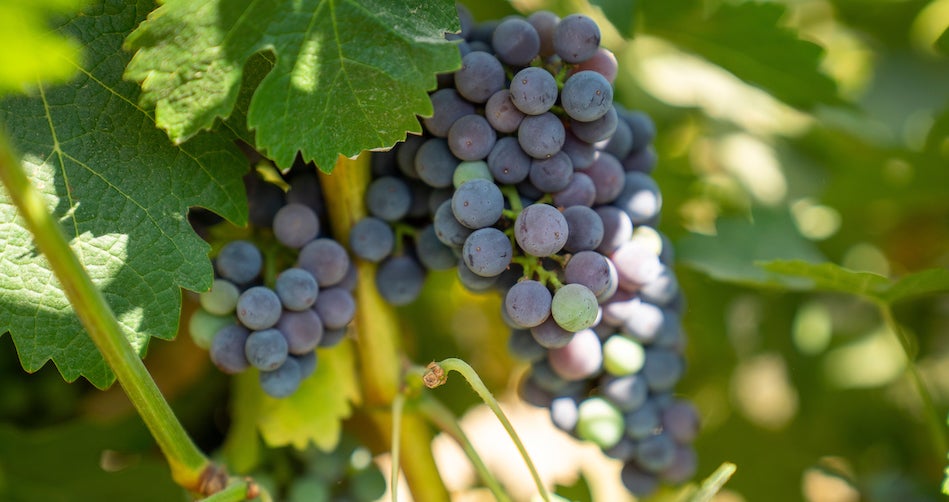
Many students in viticulture and enology take the opportunity to intern at a winery during the summer or take time off from school to work a crush or harvest season in the fall, which the department supports.
The department also has wine industry connections worldwide, and it compiles a list of winery and wine-related internships. Students can apply for awards for internships in picturesque wine-growing regions. Current awards include:
- Confrérie des Chevaliers du Tastevin — Burgundy, France
- Marchesi Antinori — Tenuta Tignanello, Tuscany, Italy
- International Wine and Food Society — destination proposed by student
- DEVO Davis Enology and Viticulture Organization — destination proposed by student
Careers for VEN majors
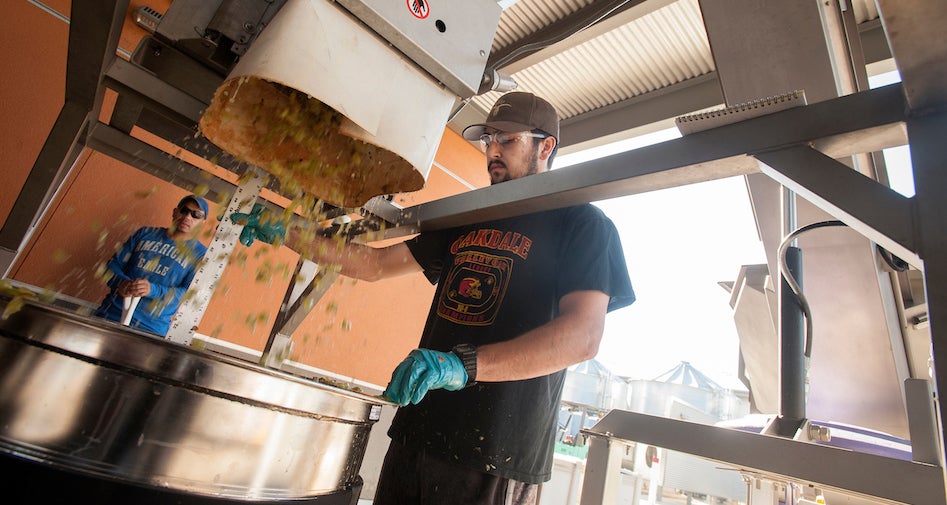
Viticulture and enology alumna Alysha Stehly was voted 2018 Person of the Year by San Diego City Beat because, as the paper wrote: “Agriculture is a tough business in San Diego but Stehly and her husband, Chris Broomell, who are also parents to a 1-year-old son, are doing it right.” The couple run Vesper Vineyards and craft wines from local grapes. Stehly is also the winemaker at Stehleon Vineyards, her parents’ label.
Right after graduation, Stehly launched her own winery in a region not known for its wine. She credits her connections with setting her up for success. Stehly often calls upon classmates and past professors for advice.
“When you set your mind to something you can really accomplish it, and it’s good to have connections locally and at a distance so you can have someone to help,” Stehly says. “Davis was great for building those connections where you’re like, ‘I’m not sure what to do!’”
Her jobs require her to wear hats as both a viticulturist and an enologist. “For either position you have to be okay with crazy hours sometimes and making decisions on the fly and high stress situations and not being in control, even though you’re supposed to be the one in control,” she says. “You need to be ready to roll with how things go.”
Stehly also teaches viticulture and enology at Mira Costa College, where she spreads the craft of winemaking throughout her region. “The modern rendition of wine in San Diego is very new,” she says. “I watch people plant their first grapes and nine years later they have a successful winery too. I love to share what I do and watch other people fall in love with it too.”
Understanding both viticulture and enology opens up many opportunities within the wine business, according to the viticulture and enology department.
Enologists may find positions as:
- cellar workers
- lab technicians
- winemakers
- wine consultants
- wine critics
- fermentation researchers
- managers in wineries and other wine-related businesses, such as cooperages, distribution and retail businesses
Viticulturists may find positions as:
- field workers
- vineyard managers
- crop researchers
- pest control advisers
- grower relations consultants
- fruit negociants
- agricultural loan officers in vineyards and crop-related businesses
Luse says he sees even broader possibilities, from brewing and distillery work to chemical engineering and lab work. Glynn pointed out the potential within the hospitality industry, as well as plant and microbiology work. “There’s so many ways you can go, and that’s what I love,” she says.
But for her part, Glynn says she wants to stick close to the wine. “I’ve never been interested in a desk job — I love working with my hands to make something,” she says. “Wine is so unique; it’s one of the coolest things you can create. I love how the soil and conditions create a wine you would never taste again. All the pieces of the puzzle will never be the same again. I want to make that unique thing.”
Rebecca Huval is digital managing editor on the web team, and she edits the Majors Blog.
